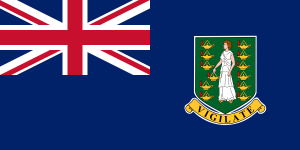Language/Virgin-islands-creole-english/Grammar/Plurals
Hi Virgin Islands Creole English learners! 😊
In this lesson, we will dive into the topic of plurals in the Creole language spoken in the Virgin Islands. As you know, nouns can be singular or plural, and they change form depending on the number they represent. It is essential to understand this concept to communicate effectively and avoid confusion. Moreover, we will also learn about some cultural aspects of the Virgin Islands, which will enrich our learning experience. Are you ready? Let's start!
Don't hesitate to look into these other pages after completing this lesson: Pronouns, Negation, How to Use Have & How to Use Be.
Plural formation[edit | edit source]
In Virgin Islands Creole English, the most common way to form plurals is by adding "-dem" at the end of the singular noun. For example, "book" would become "book-dem" to indicate that there are multiple books. This rule applies to most nouns, whether they are of English or African origin. Here are some examples:
| Virgin Islands Creole English | Pronunciation | English |
|---|---|---|
| book-dem | buk-dem | books |
| mango-dem | mang-goh-dem | mangoes |
| child-dem | chail-dem | children |
| house-dem | hows-dem | houses |
| foot-dem | fut-dem | feet |
Notice that some words, primarily of African origin, might have a different plural form or might not change at all. For instance, "sheep" does not change in the plural, while "man" becomes "men" instead of "man-dem." In general, these exceptions are rare, and you will likely encounter them while interacting with native speakers.
There is another way to indicate the plural in Virgin Islands Creole English, which consists of repeating the noun twice, such as "fish fish" for "fishes." However, this method is less common nowadays and might sound outdated or even comical in some situations.
Cultural facts about the Virgin Islands[edit | edit source]
The Virgin Islands is a group of islands located east of Puerto Rico in the Caribbean Sea. They are divided into two parts: the British Virgin Islands to the north and the United States Virgin Islands to the south.
The original inhabitants of the islands were the Taínos, an Arawak-speaking people who arrived from South America around 1000 CE. Later on, the islands were discovered by Christopher Columbus on his second journey in 1493, who named them after Saint Ursula and the 11,000 virgins. Eventually, the Spanish, the Dutch, and the British all claimed parts of the islands over time. Today, the Virgin Islands are a popular tourist destination known for their stunning beaches, diverse cuisine, and vibrant culture.
Dialogue[edit | edit source]
To help you practice plurals, we have created a dialogue between two friends who are discussing their hobbies.
- Person 1: "Mi like fo read book-dem. Wa you like fo do?" (I like to read books. What do you like to do?)
- Person 2: "Mi like fo play foot-dem." (I like to play soccer.)
Can you come up with some sentences using plural nouns? Feel free to write them in the comments below and get feedback from other learners or find native speakers and ask them any questions.
Exceptions[edit | edit source]
As we mentioned earlier, some words do not follow the "-dem" plural rule. Here are some of the most common exceptions:
| Virgin Islands Creole English | Pronunciation | English |
|---|---|---|
| sheep | shyap | sheep |
| deer | dir | deer |
| fish (singular and plural) | fish | fish |
| man | man | men |
| woman | woman | women |
Notice that "fish" remains unchanged in the plural form, which is different from the English language. Also, "woman" becomes "women" instead of "woman-dem."
Conclusion[edit | edit source]
In summary, forming plurals in Virgin Islands Creole English is relatively straightforward, with most nouns ending in "-dem" in the plural form. However, there are some exceptions, such as "fish" or "sheep," that do not change or behave differently. Now, you can use this knowledge to enhance your communication skills in the language spoken in the Virgin Islands. Remember to practice often and explore more of the culture and history of this fascinating archipelago. If you want to learn more about the Grammar of Virgin Islands Creole English, check out our other lessons.
➡ If you have any questions, please ask them in the comments section below.
➡ Feel free to edit this wiki page if you think it can be improved. 😎
Sources[edit | edit source]
Now that you've completed this lesson, don't stop learning! Check out these related topics: Say Hello and Greetings in Virgin Islands Creole English, Give your Opinion & Conditional Mood.

